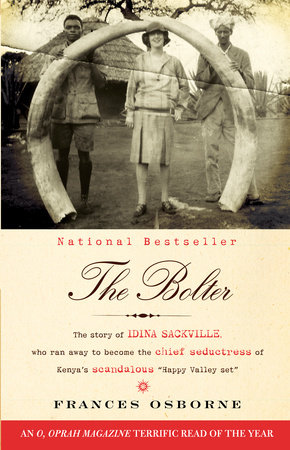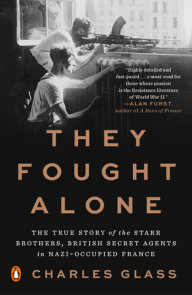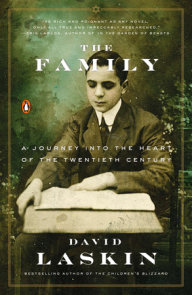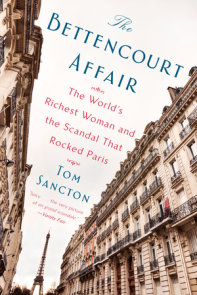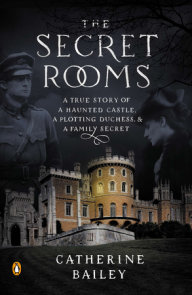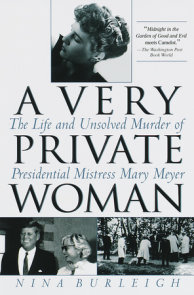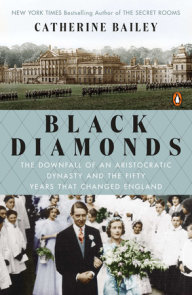READERS GUIDE
The introduction, discussion questions, and suggested further reading that follow are designed to enhance your group’s discussion of The Bolter, Frances Osborne’s brilliant biography of her great-grandmother, Idina Sackville.Introduction
Idina Sackville was irresistible. Slight, girlish, and from one of Britain’s oldest families, she was not conventionally beautiful (she had a “shot-away chin”), but she dazzled men and women alike. Like Nancy Mitford’s character in The Pursuit of Love, who felt herself to be “too beautiful and too gay to be burdened with a child at the age of nineteen,” Idina Sackville would be known as the woman who callously left her husband and two young sons to run away to Africa with her lover. But, as Frances Osborne deftly illustrates, the reality of the situation was much more complicated. Now, using her scandalous great-grandmother’s never-before-seen letters; the diaries of Idina’s first husband, and stories from family members, Osborne follows Idina from the champagne breakfasts and thé’s dansants of lost-generation England to the farmlands of Kenya. She paints a full-bodied portrait of the Edwardian age and brings new life to an enigmatic figure whose name is still scribbled boldly across her era.Idina’s first husband, Euan, was a dashing young cavalry officer with “two million in cash.” They had a seven-story pied-à-terre on Connaught Place overlooking Hyde Park and three estates in Scotland. Idina had everything in place for a magnificent life until Archduke Ferdinand was assassinated in Sarajevo and the world the newlyweds assumed would last forever was shattered by war. As World War I increasingly kept the couple apart—and as her husband became increasingly infatuated with another woman—Idina became a full-blown flapper, driving about London with her pet Pekingese, Satan, and pushing the boundaries a bit too far. In 1918, just after the armistice was signed, Idina was given a choice: Stay and behave, all while watching the husband she still loved move from affair to affair, or divorce Euan and never see her children again.
Idina bolted. Setting out with her soon-to-be second husband for a new adventure in Mombasa, she dreamed of a new life and new love. But nothing would live up to her expectations. Divorce followed divorce, and in between a parade of lovers, she became known as the high-priestess of the Happy Valley set, whose wild parties were tittered about because of their bed-hopping, boozing excess. An ex-husband was murdered, and a beloved friend lost to suicide. The behavior that raised eyebrows and caused frowns in England began to do the same in Kenya. When offered a second chance to be a part of her sons lives, Idina grabbed it with both hands . . . but another world war would bring more crippling loss.
Questions and Topics for Discussion
1. Depending on who you ask, Idina Sackville was a hundred different things. Her lifelong friend Rosita Forbes claimed that not only was she a vibrant delight to her friends, “she was preposterously—and secretly—kind.” The poet Frédéric de Janzé wrote, “I is for Idina, fragile and frail.” And Frances Osborne’s mother, Idina’s granddaughter, raised her own children to believe that Idina was a bad, selfish woman. After reading The Bolter, which assessment are you most inclined to agree with?
2. “Along with hunting, shooting, fishing, and charitable works, adultery was one of the ways in which those who did not have to work for a living could fill their afternoons.” Does this statement fit in with your own ideas about Edwardian England? How does it differ?
3. In Edwardian England, the upper classes could misbehave so long as they were not found out. As the actress Mrs. Patrick Campbell said, “It doesn’t matter what you do in the bedroom, as long as you don’t do it in the street and frighten the horses.” What do you think of this moral code of behavior?
4. Muriel, Idina’s mother, was an unconventional woman herself. How do you think Muriel’s decision to divorce Gilbert and follow her friend Annie Besant into Theosophy affected Idina’s worldview? How could her marriage to Euan be called an act of “rebelling”? Was she right to marry him?
5. World War I obviously took a toll on Idina and Euan’s marriage. Do you think the relationship would have turned out any differently had the war not forced them into such “strange wartime married life”? When Idina bolted with Charles Gordon, do you think things could have still been repaired with Euan, or was she right in thinking her marriage was a lost cause?
6. Is your opinion of Idina’s decision to be separated from her children at all affected by the double standards of the era’s divorce laws or the distant manner in which many upper-class parents brought up their children? What about Euan’s rigid ultimatums?
7. Frances Osborne writes that Idina’s passion for Kenya was to become “her longest love affair.” What do you think drew her to Africa?
8. Idina planned on having an “open” marriage with Joss, both of them were allowed to have lovers, provided that “nothing got too serious.” Do you think that an open marriage could ever work?
9. When asked whether she minded Alice de Janzé sleeping with Joss, Idina said, “But Alice is my best friend.” Idina knew that Alice would not take Joss away from her, but do you think that she really did not mind that relationship?
10. “Idina’s greatest sin was not her need for new sexual excitement but that she insisted upon marrying her boyfriends . . . thus shaking the traditional social structure grounded on lifelong marriages.” Frances Osborne suggests that it was a way to play up her role as a socially outlawed femme fatale. Do you agree? Or do you think Idina meant what she said when she wrote that marriage “is probably the only real solution to happiness”?
11. Idina was a successful and hard working farmer. She treated the people who worked for her well and, like them, went barefoot. How does this affect your view of Idina’s bad behavior?
12. Idina reconnected with her sons when they were adults and struck up a strong bond. To what extent could her relationship with them at this stage be considered mothering? Is it possible, do you think, for a woman to suddenly become a mother to her children after so many years apart? How do you think the relationship would have developed had David and Gee not been killed so soon?
13. In her glittering review of The Bolter, Michiko Kakutani of The New York Times wrote that “Idina Sackville could have stepped out of an Evelyn Waugh satire about the bright young things who partied away their days in the ’20s and ’30s, and later crashed and burned.” In what ways do you feel that Idina was emblematic of her times? In what ways do you feel that Idina was a victim of her times?
14. Do you think Idina could ever have had a successful marriage? How different do you think Idina’s love life would have been if she had lived in the 1990’s?
15. Who might be considered an “Idina” today? Or have we lost that compelling combination of sophistication and sin?
16. Do you think Idina made any good decisions in her life? Or, which do you think was the most unfortunate one?
(For a complete list of available reading group guides, and to sign up for the Reading Group Center enewsletter, visit www.readinggroupcenter.com)







